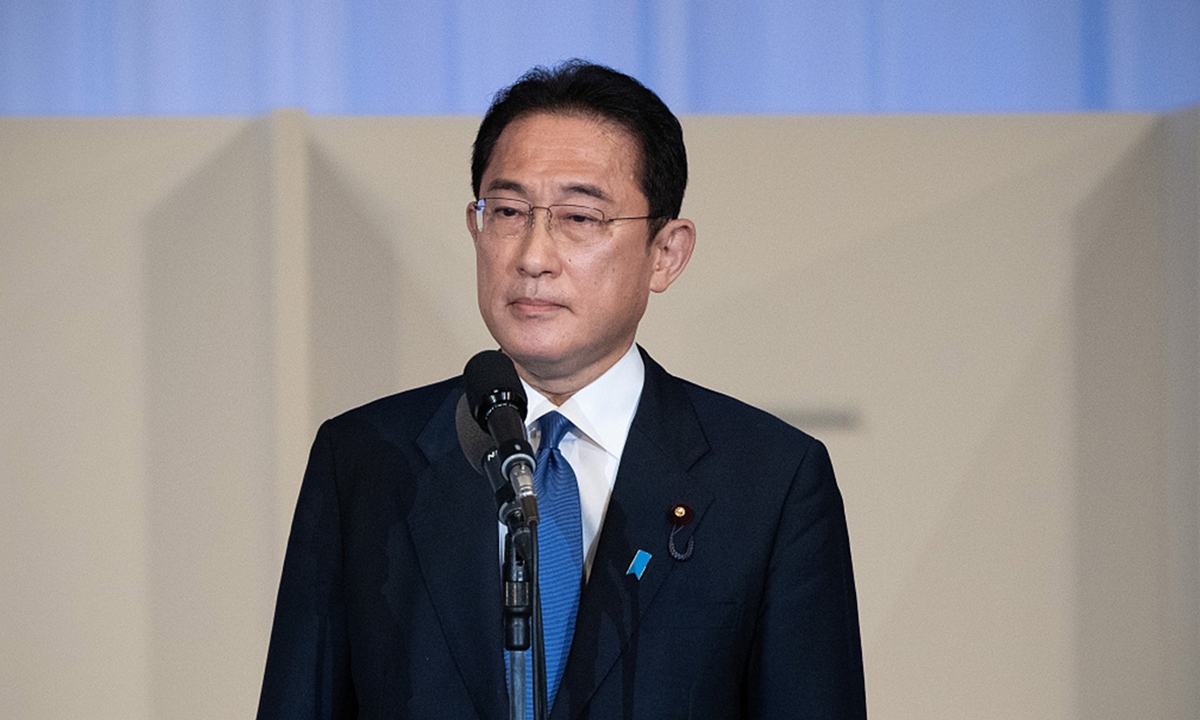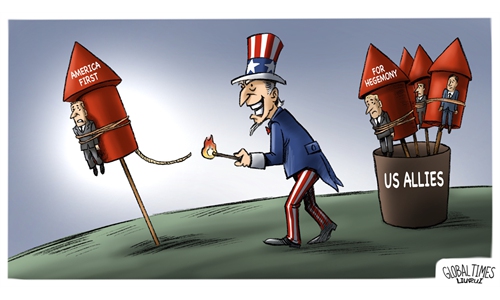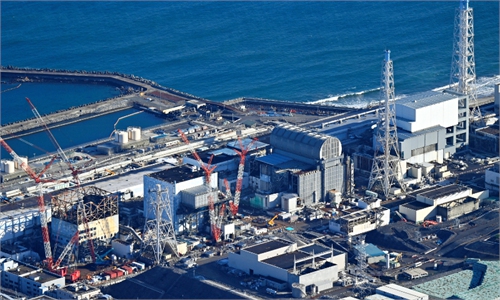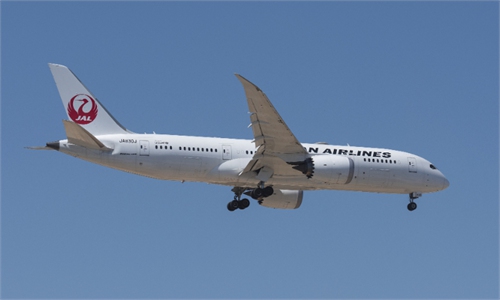Kishida’s surprise visit to Kiev driven by self-calculations seems more like adding fuel to the fire

Fumio Kishida. Photo: CFP
Japanese Prime Minister Fumio Kishida, who just wrapped up a visit to India, is making a surprise trip to Ukraine on Tuesday to meet Ukrainian President Volodymyr Zelensky. Kishida thus becomes the last G7 leader to visit the country. Yet his whirlwind visit is far from helping resolve the Ukraine crisis.There are three reasons behind Kishida's tour.
To begin with, Japanese political elites generally support their prime minister in making a visit to Ukraine. For example, Jun Azumi, the Diet affairs chief of the Constitutional Democratic Party of Japan, told reporters that the Diet should not prevent the prime minister from visiting Kiev, Japan's Jiji Press reported on February 27.
Second, Japan holds the rotating G7 presidency this year; yet before Tuesday, all G7 member states' leaders, except Kishida, have visited Kiev. If the Japanese prime minister could not visit Ukraine before the G7 Hiroshima Summit in May, it would not only signal a failure of Japan's G7 presidency, but also lead to such a result - many issues on which Japan leads, such as countering "threats" from China, Russia and North Korea, as well as affairs on the East and South China Seas, would be difficult to obtain consensus from other G7 member states. After all, Japan is the only Asian country in the G7, and the other six, all European and North American countries, are more worried about how to unite against Russia and support Ukraine, compared to Japan's concerns about its own regional security situation. Therefore, Kishida's surprise visit to Kiev is intended to demonstrate that Japan and other Western countries are like-minded partners and to emphasize that security in Europe and the Indo-Pacific region are inseparable.
Third, Kishida intends to boost his cabinet's approval rating by visiting Kiev. The latest poll released by Japanese media Yomiuri Shimbun on Tuesday showed that the approval rate for the Kishida cabinet was 42 percent and disapproval stood at 43 percent. Basically, there is little change in the approval rate compared to last month (41 percent). One of the most important reasons is probably the Kishida cabinet's lack of prominent domestic and foreign diplomatic achievements.
In short, Kishida's visit to Ukraine aims to show his personal adventurous spirit to the public, in an attempt to stimulate his cabinet's approval rating via an "unexpected" diplomatic move, thereby consolidating the foundations of his administration.
It is unlikely that this tour will contribute to a solution to the crisis in Ukraine. According to Japanese media, during his meeting with Zelensky, Kishida will directly convey to him respect for "the courage and perseverance of the Ukrainian people" and "the solidarity and unwavering support for Ukraine of Japan and the G7." He will also confirm with the Ukrainian side that Japan "opposes any unilateral attempts to change the status quo by force or coercion, anywhere in the world." These comments are nothing new but simply repeat the statements made by other G7 leaders during their visit to Ukraine.
In this regard, Kishida's visit seems more like adding fuel to the fire. He wants to equate the crisis in Ukraine with the Taiwan question. However, at a time when Asia-Pacific countries are generally seeking peace and stability, Japan's move is tantamount to stirring up troubles, which harm others without any benefit to itself.
Finally, this is the first visit by a Japanese prime minister to a country and region with an ongoing war. Previously, Japanese prime ministers showed support to the US in the Gulf War and the Iraq War, yet did not appear in relevant countries. This time, Kishida's presence in Ukraine obviously bears more symbolic significance. At the end of 2022, Kishida's administration revised three policy documents, including the National Security Strategy, to explicitly and significantly increase the defense budget and beef up armaments. Thus, is Kishida hoping to show the world a country pursuing peace or a nation seeking military build-up?
The author is a visiting researcher at the Institute of Japan Studies, Liaoning University. opinion@globaltimes.com.cn



